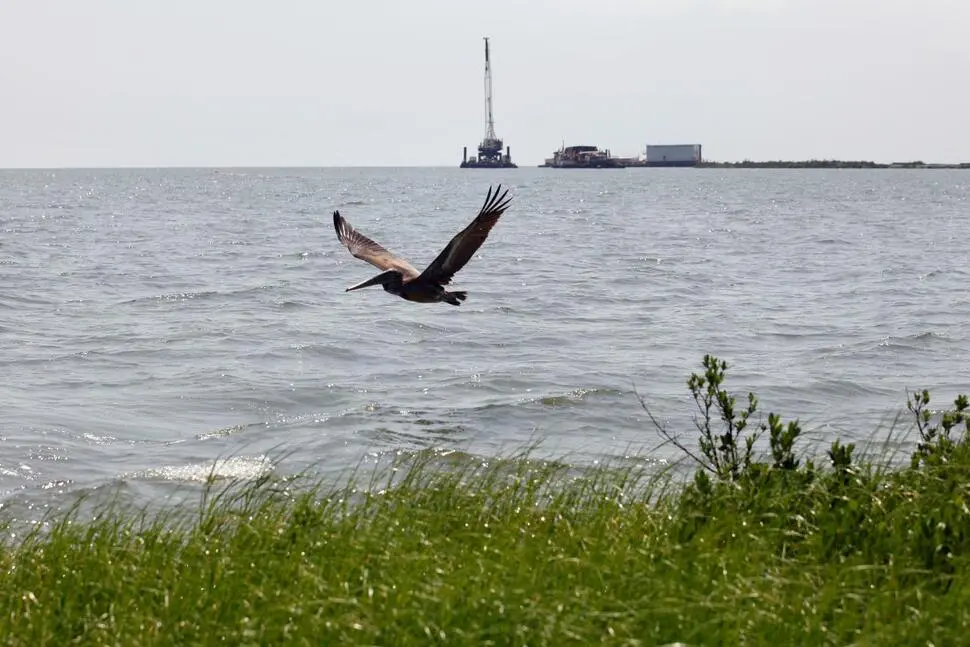NTSB: Pipeline Operator Took Nearly 13 Hours to Halt Oil Flow After Pressure Drop

A new report from the National Transportation Safety Board reveals that an oil company delayed shutting down a leaking pipeline for almost 13 hours after detecting a pressure drop, raising serious safety and environmental concerns.
A recent investigation by the National Transportation Safety Board (NTSB) has revealed that an oil pipeline operator failed to shut down a major crude oil pipeline for nearly 13 hours after a significant drop in pressure was detected — a delay that may have worsened environmental damage and endangered public safety. The incident, which occurred in 2022 but is only now being fully detailed in the NTSB’s final report, involved a pipeline operated by Houston-based energy company Amplify Energy Corp. The pipeline in question spilled approximately 25,000 gallons of crude oil into the Pacific Ocean off the coast of Southern California, leading to beach closures, wildlife impacts, and a major cleanup effort. According to the NTSB, the pipeline’s automatic monitoring systems detected a pressure anomaly at approximately 4:10 a.m., signaling a potential leak. Despite repeated alerts and warnings, company operators continued to restart and pump crude through the line, believing the drop in pressure might have been due to air pockets or a malfunctioning sensor rather than a rupture. It wasn’t until nearly 5 p.m. that same day — nearly 13 hours after the first warning — that operators fully shut down the pipeline, by which time oil had already seeped into the ocean and begun spreading toward coastal communities, including Huntington Beach and Newport Beach. In its report, the NTSB cited the company for “ineffective leak detection and delayed response,” stating that the operators failed to follow established emergency protocols. Investigators also criticized the lack of adequate training and the overreliance on flawed interpretations of automated data. “Had the operator responded promptly to the initial pressure drop, the environmental impact could have been significantly reduced,” the report states. “This delay reflects systemic issues in training, oversight, and operational discipline.” Environmental groups were quick to condemn the findings. “This is a textbook case of corporate negligence,” said Marissa Lee, a spokesperson for California’s Coastal Watch Alliance. “When a pipeline triggers multiple alarms and no one takes action for 13 hours, that’s not just a technical failure — it’s a failure of accountability.” The NTSB’s findings are likely to intensify scrutiny on pipeline operators nationwide, especially at a time when regulatory agencies are under pressure to prevent spills linked to aging infrastructure and lax oversight. In the wake of the spill, Amplify Energy has faced multiple lawsuits and paid over $13 million in fines and settlements, but this new federal report may fuel calls for more aggressive penalties or even criminal investigations. The company released a brief statement following the report, saying: “We acknowledge the findings of the NTSB and continue to cooperate with all regulatory agencies. Since the incident, we have implemented new safety protocols and training to ensure this never happens again.” However, critics argue that after-the-fact corrections are not enough — especially when the delay allowed thousands of gallons of oil to enter a sensitive marine ecosystem, harming marine life and local tourism economies. “This is exactly why communities are pushing for stronger safeguards, automatic shut-off valves, and stricter inspection regimes,” said U.S. Rep. Katie Porter (D-CA), whose district includes part of the affected coastline. “The public should not have to pay the price for a company’s refusal to act responsibly.” The NTSB report reveals a chain of decisions that cumulatively led to disaster. Operators misinterpreted the initial drop in pressure as “transient,” assuming it was a false signal caused by air in the line or sensor error. Rather than investigating on the ground, they relied on internal readings and repeatedly restarted the system, each time pumping more crude oil through the ruptured pipe. The rupture itself was later found to have been caused by anchor damage, likely from a passing cargo ship — a risk well-known to offshore pipeline operators. However, once that damage occurred, the pipeline’s emergency response systems failed to isolate and contain the leak. In response to the findings, the NTSB recommended that the Pipeline and Hazardous Materials Safety Administration (PHMSA) develop more stringent guidelines for leak detection and operator response, including mandatory training for pipeline operators on interpreting automated signals; upgraded leak detection software with real-time alerts and escalation triggers; and automatic shut-off systems that engage when pressure drops below safe levels for a given time. The spill had lasting consequences. Dozens of seabirds and marine mammals were found coated in oil, and sensitive wetlands along the Orange County coast were polluted. Fishing was suspended for weeks, and beach businesses suffered massive losses during what would have been peak tourist season. Clean-up efforts cost millions, and legal battles continue over who bears full responsibility — including the shipping companies whose anchors may have damaged the line in the first place. “This was not just a technical failure; it was a failure of stewardship,” said oceanographer Dr. Elise Marquez. “The ocean is not a dumping ground for delayed decisions.” With the release of the NTSB report, pressure is mounting on federal and state regulators to tighten oversight and ensure that such delays do not happen again. Environmental groups are urging the Biden administration to revisit pipeline safety regulations that were weakened under previous administrations and to prioritize investments in clean energy infrastructure that would reduce dependence on aging oil pipelines. For residents along the California coast and others living near major pipelines, the report is a sobering reminder that delays in response can carry irreversible consequences. “This should be a wake-up call for the entire oil industry,” said Rep. Porter. “We cannot afford to wait 13 hours the next time — because the damage is already done.”



